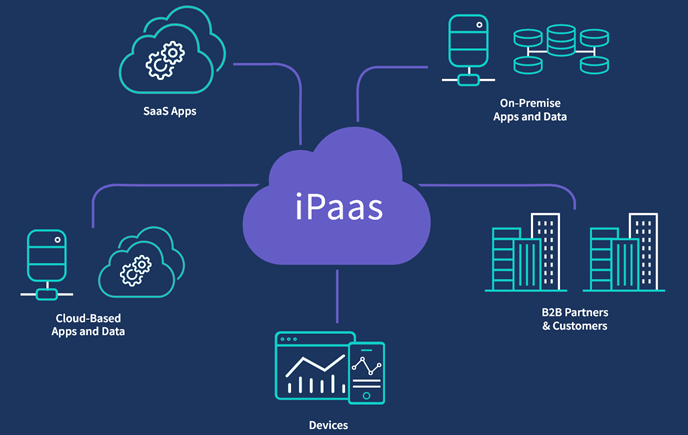The Future of Cloud Connectivity Through iPaaS

A powerful and strategically critical trend reshaping the enterprise IT landscape in the United States is the rise of the "API economy," and this has had a profound impact on the evolution of Ipaas Trends. In a digital-first world, a company's data and business capabilities are no longer locked away in monolithic, internal systems. Instead, they are being exposed as a set of well-defined, secure, and manageable Application Programming Interfaces (APIs). These APIs are not just a technical implementation detail; they have become products in themselves. They are the digital building blocks that allow a company to securely connect with its partners, to enable its customers to build new experiences, and to create new digital revenue streams. This has created a massive need for a new category of software focused on API lifecycle management. Recognizing this, the leading iPaaS vendors have strategically expanded their platforms to include a comprehensive suite of API management capabilities. This convergence of integration and API management is a central trend, transforming the iPaaS platform from a simple tool for internal connectivity into the central, strategic gateway for a company's entire digital ecosystem.
Key Players
The key players in this converged iPaaS and API management market are a mix of the major iPaaS leaders and companies that started as pure-play API management vendors. The first group consists of the leading iPaaS platforms that have built or acquired a full suite of API management features. Salesforce's MuleSoft is a preeminent key player in this category, with its Anypoint Platform being a market leader in both integration and full lifecycle API management. Boomi is another key player with a strong and comprehensive API management offering. The second group of key players are the companies that started as specialized API management platforms and are now adding more iPaaS-like integration capabilities. Google's Apigee is a major leader in this space. A third group are the major cloud providers, all of whom offer their own native API Gateway and API management services as a core part of their platforms. The competition between these different players to become the single, unified platform for both creating internal integrations and for publishing external APIs is a key strategic battle in the enterprise software market. The major US enterprises, with their complex ecosystems of partners and digital channels, are the primary consumers of these advanced platforms.
Future in "iPaaS Trends"
The future of the converged iPaaS and API management market in the United States will be defined by a greater focus on business value, governance, and the creation of internal "API marketplaces." The future will see a much stronger linkage between the API management platform and the business's bottom line. The platforms will provide more sophisticated analytics to help companies understand not just the technical performance of their APIs, but their business impact. This includes tracking which APIs are driving the most revenue, which partners are the most active consumers, and which new services are gaining the most traction. Another major future trend will be a much greater focus on API security and governance, as a company's public-facing APIs become a major new attack surface. The future platforms will have much more advanced, AI-powered security features to detect and block malicious API traffic. The third future trend will be the rise of internal API marketplaces. Large US enterprises will use their iPaaS/API platform to create an internal "app store" where development teams across the company can easily discover, subscribe to, and reuse APIs created by other teams, dramatically accelerating the pace of internal innovation and reducing redundant work. This is a level of maturity that is far ahead of what is currently seen in the emerging markets of South America or MEA.
Key Points "iPaaS Trends"
This analysis highlights several crucial points about the convergence of iPaaS and API management in the US. The primary driver is the strategic need for businesses to participate in the API economy by securely exposing their data and services. The key players are a competitive mix of the leading iPaaS vendors, the specialized API management platforms, and the major cloud providers. The future lies in a greater focus on measuring the business value of APIs, a major investment in AI-powered API security, and the creation of internal API marketplaces to drive innovation. The iPaaS platform is evolving from a simple integration tool to become the central nervous system and strategic control plane for the modern, API-driven digital enterprise. The Ipaas Trends is projected to grow to USD 211.36 Billion by 2035, exhibiting a CAGR of 28.87% during the forecast period 2025-2035.
Top Trending Reports -



